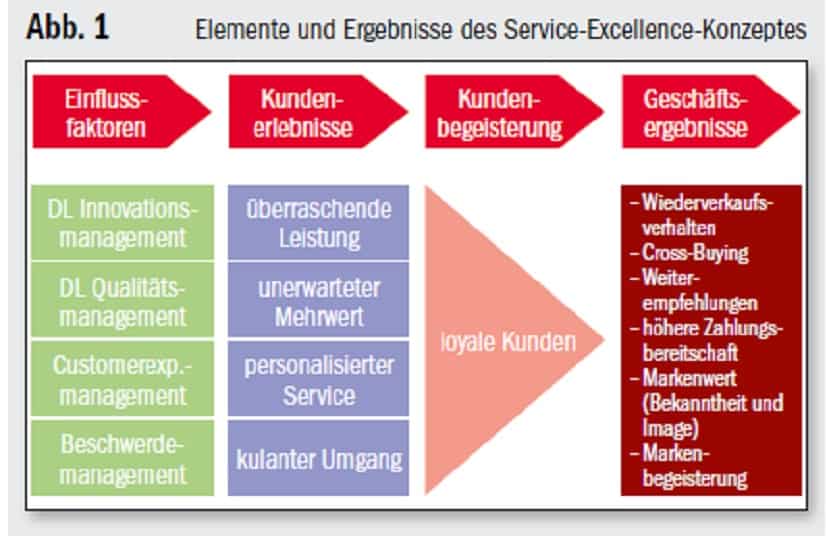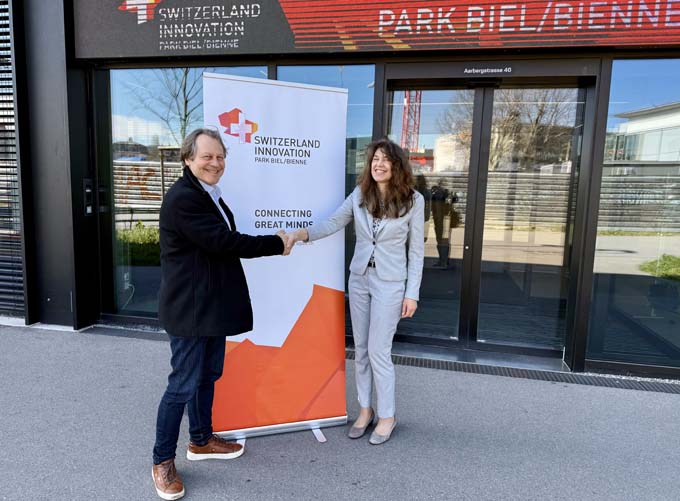Customer enthusiasm through service excellence
Increasing demands and expectations of their customers are the big challenges of organizations today. On the one hand, cost pressure is constantly increasing, on the other hand, customer expectations are rising inexorably. Meeting customer expectations has become a matter of course. But is this still enough to retain customers in the long term?

Today's top performance becomes tomorrow's standard performance. Customers are becoming more and more demanding. On the one hand, this concerns the core services of a service provider as well as possible additional services, which often make up the so-called "certain something". In this sense, the competitive pressure is increasing enormously, especially in standardized areas, and it is difficult to counteract it with pure measures to increase efficiency, especially because customers today are increasingly willing to change, i.e. the willingness to discover new things is increasing. For these reasons, the concept of service excellence is now becoming the focus of entrepreneurial interest in many service industries.
The new technical specification CEN/TS 16880 serves as a guideline
A new technical specification CEN/TS 16880 "Creating outstanding customer experiences through service excellence" defines 7 principles and 9 elements of service excellence. With regard to customer delight, topics are covered such as: What are the important prerequisites in strategic business planning? How can learning, creativity and innovation be ensured at all levels? What are suitable structures and processes to bring about customer proximity even better? What is important with regard to corporate culture and what options are available to capture and specifically manage customer enthusiasm? From these topics it becomes clear that the concept of Service Excellence is a management approach with the objective of orienting the entire organization towards continuous top performance.
Not least for purely economic reasons, however, the traditional goal of customer satisfaction must not be forgotten. As is well known, basic requirements must always be met; quality is a prerequisite if people are to be satisfied. However, if the goal is to achieve customer enthusiasm, the question arises as to how a management system should be designed in order to be able to continuously offer excellent services. In other words, organizational capabilities should be designed in such a way that customer enthusiasm and, if applicable, other stakeholders are the rule.
The employees are at the centre
The key therefore clearly lies with the employees: A service orientation and culture is created that permeates the entire company. This means that not only internal departments such as finance and accounting or the HR department see themselves as service providers, but ultimately all employees become service providers, whether the customer is internal or external.
Service Excellence means for all employees in the company:
- fulfill what was promised;
- to make the first move in the event of a malfunction;
- quick reaction and, if necessary, help with complaints, conciliation;
- Willingness to learn and openness to new things;
- to provide the customer with a personalized service that goes beyond expectations.
This goal can be achieved when employees become entrepreneurs and (can) take responsibility for their service. The prerequisite for this is that they are given opportunities to shape their work and are given the chance to reflect on their own performance.
CEN/TS 16880 is basically intended as a guide. This means that the individual modules of the specification can be implemented as required. The consistent introduction of the concept of Service Excellence comes close to an organizational development: Both the structures and processes of a company are considered and optimized if necessary, but aspects of group dynamics and personnel development in particular also play a central role.
The demarcation from normative management systems
As Fig. 4 shows, CEN/TS 16880 represents a holistic management approach. This raises the question of the demarcation from other normative bases in the management field. As far as the ISO 9001 standard is concerned, reference is made here to the illustration in Fig. 2. The distinction from the Excellence approach of the European Foundation for Quality Management (EFQM), which has been in existence for 25 years, is somewhat more complex. An essential difference is that the EFQM model provides for a gradual assessment on the basis of a point system, whereas CEN/TS 16880 is intended to be understood as a guideline and therefore does not represent a direct assessment. Consequently, if benchmarking is to be sought between companies implementing a service excellence concept, the criteria would have to be defined on a case-by-case basis. They should clearly be found in employee loyalty and customer retention. Thus, while the EFQM concept enables a holistic assessment of organizations, CEN/TS 16880 provides a comprehensive management concept that focuses on the customer and promotes the professionalism of employees at all levels through modern leadership approaches. In this sense, CEN/TS 16880 speaks of "managing an organization from outside-in". It goes without saying that this also means lean and efficient structures!
A defined and communicated strategy is important
Thus, in a first step, the management is required to introduce CEN/TS 16880. Taking into account the environment and, if necessary, the activities of the competition, the opportunities and risks should be assessed (SWOT analysis) in order to then define a clear strategy and communicate it (internally). Only if all employees with management functions are fully convinced of the introduction of the Service Excellence concept can it be successfully implemented in the company! Furthermore, it is important to design a concept for measuring performance and impact at an early stage in order to record and communicate progress on an ongoing basis. It is ideal to designate a person at management level who is responsible for introducing the system and who can accompany the introduction of the Service Excellence concept in the sense of internal coaching. As is generally the case with the implementation of a comprehensive management system, the inclusion of all employees is fundamentally important, especially when introducing the Service Excellence concept. The comprehensive knowledge potential of the employees can only come to fruition if everyone can commit to the goal and develop a willingness to innovate and learn.
If this is successful, the introduction of the Service Excellence concept lays an important foundation for the sustainable development of a company and its success.









